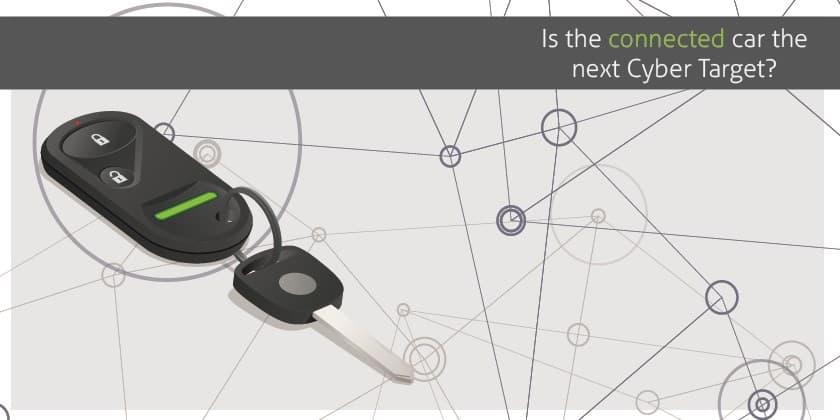The idea that we aren’t far away from a time in history where cars are driverless is incredible. There are no two ways about that. However, as technology evolves so does the nefarious use of it. Experts warn that we are not too far away from a time and age where assassins and would be killers need only a laptop and a line of code to send these driverless cars off the closest bridge, or into fast moving traffic.
Cyber threat to Connected Cars

These worries first arose two years ago when two ethical hackers looking for computer vulnerabilities gained access to a Jeep Cherokee from a computer they were using miles away from the vehicle. They could take complete control from the test subject inside the vehicle and disable his transmission in the middle of a highway.
The duo found an electronic route from the Jeep’s entertainment system to its dashboard. From here, they could control the vehicles steering, brakes and transmission. This forced the Jeep’s manufacturer to recall 1.4 million of its vehicles. Since then Uber, Tesla, Apple and many more that are involved in the connected car space have recruited cyber security professionals.
It comes as no surprise that automotive industry spend on cyber-security is set to jump significantly in the coming years. PriceWaterHouseCoopers also suggest that two in every three cars sold by 2022 will have some form of connectivity, with the market at that time expected to be around an eyewatering £120bn.
While it will be sometime before driverless cars are the norm on our roads, connected cars have started to become more and more normal all over the world. This includes cars that have features such as enhanced GPS, location and maintenance live recording and Wi-Fi services.
Entire cities could come under cyber-attack in the future

As this market continues to evolve, cyber security will become a more serious issue within the connected car landscape, and this goes beyond the purview of the vehicle itself. Major cities will become smart cities and accommodate connected cars with special roadways and cars can be hooked up to special information disseminating docks which could potentially be affected by malware.
Major metropolitan cities could go beyond just accommodating connected cars on their existing networks, as these major cities evolve it is expected that they will design with the connected car in mind when it comes to new roads and community planning. Being a connected car city could, in the future, prove to be a unique selling point for those looking to attract new business, investment and people.
The continued evolution of this space is key for many tech companies, transport firms, entrepreneurs and investors who will all be looking to get on board as the technology becomes more refined. But make no mistake, cyber security will be key to the connected car space becoming a success.
The threat is real but only time will tell how wide spread it will be. If you’re worried about your organisations cyber security you may want to check out our product range designed to help you and your colleagues spot cyber-attacks before it’s too late.
Talk to us today for more information on how you could safeguard your organisation.







